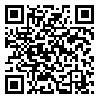2. 1. Shahbazi S, Rahmani M, Heyrani A. The effects of sensory-motor integration on Balance and Reaction time in children with Developmental Coordination Disorder. JMR; 2016. 9 (S3):1-9. (Persian)
3. 2. Zwicker JG MC, Harris SR, Boyd LA. Developmental coordination disorder. A review and update. Eur J Paediatn Neurol; 2012.1 6:573–581.
4. 3. Mohammadi khozani Z. Developmental Coordination Disorder: A review and update. JEE. 2016; 4 (141):70-77. [Persian]
5. 4. Malekpour M, Mohammadi Khozani Z, Ghamarani A, Yarmohammadian A. Prevalence of Developmental Coordination Disorder and Its Relationship with Demographic Factors among First and Second Grade Students of Primary School in the City of Isfahan. MEJDS. 2015; 5:220-229. [Persian]
6. 5. Zarezade M, sahebozamani M, Farahmand S. prevalence of developmental coordination disorder in female 9 to 11 years of Fars Province: (khorrambid city). JEE. 2016; 9 (137):27-33. [Persian]
7. 6. Jokar tang karami S, Shaikh M, Bagharzadeh, F. The Effect of a Period of Selected Physical Activity on Improving Gross Motor Skills in Children with Developmental Coordination Disorder (DCD). JMLM. 2018: 10 (1): 23-36 [Persian]
8. 7. Shahrbanian SH, Hashsmi A. The Effects of Core Stabilization Training on Balance and Reaction Time in Children with Developmental Coordination Disorder. JRSM. 2018:8 (16):83-91. [Persian]
9. 8. Jokartang Karami S, Sheikh M, Jamshidi A. Effect of a training program period on improving the skills of children with developmental coordination disorder. JMB. 2015:6 (18): 5-30. [Persian]
10. 9. Moradi H KE, Teymoori S, Shayan-Noshabadi A. The effect of Spark motor program on sensorymotor functions in children with developmental coordination disorder. KAUMS. 2015: 19 (5): 391-8. (Persian)
11. 10. Monique De Milander, Frederik F. Coetzee & André Venter. Perceptual-motor intervention For Developmental Coordination Disorder Grade 1 Children. AJOL; 2015. 37(2): 15-32.
12. 11. Kordi H, Sohrabi M. The effect of strength training based on process approach intervention on balance of children with developmental coordination disorder. JAAP 2016;114 6: 526-533 / 526.
13. 12. Wisdom SN DM, Piek JP, Hay D, Hallmayer J. Can autism,. language and coordination disorders be
14. differentiated based on ability profiles?. ESCAP; 2007; 3:16. 86-178.
15. 13. Barzegar Bafrooei K, Mirjalili M, shirahany A. The Role of Motion Games, Art and Music in Reducing Behavioral Problems in Children with Learning Disabilities. JEE; 2015.7(135): 52-62. (Persian)
16. 14. Jokar tang karami S , Shaikh M. Bagharzadeh F. The Effect of a Period of Selected Physical Activity on Improving Gross Motor Skills in Children with Developmental Coordination Disorder (DCD). JMLM . 2018: 10 (1): 23-36. [Persian]
17. 15. Mohamadi Orangi. B. Yaali, R, Shahrzad. N. The effect of Eight Weeks Aerobic Rhythmic Exercises with Music on Motor Proficiency, Anxiety and Depression in Children with Developmental Coordination Disorder. JMB.; 2018. 9(30): 57-70. (Persian)
18. 16. Gülay, Y, A. Nusret, R. Asiye, F. Fatih, K. The effects of dance education on motor performance of children. ERR; 2011. 6(19):979-982.
19. 17. Fallahi AA, Abdolahi, M. H. The Relationship between Physical Preparedness and Academic Achievement among High School Students. QJOE; 2017. 33(2):133-52. [Persian]
20. 18. Ghorbani Qahfarhi, L, Qaisari, N. The effect of morning exercise on the academic achievement of first grade, second and third year elementary school students. JARSM; 2017. 6(21): 97-106. [Persian]
21. 19. Gallahue dL, ozmun johan C. Understanding Motor development: infants, children, adolescents, adults, 7 th ed. 2012. Pp: 199-200.
22. 20. Yasami M, Shahrzad N, Ghadiri F, Hatami Shahmir E. Effects of Teacher Centered and Mastery Motivational Climate Approach on self-esteem and Fundamental Movement Skills in Children. JSPS; 2017. 19: 23-40. [Persian]
23. 21..Shahbazi S, Heyrani, Ali. The effect of sensory-motor integration activities on the attention and memory of children with developmental coordination disorders (DCD). JRSM; 2018.14(28):247-58. [Persian]
24. 22. Zarei J, Taheri HR, Sohrabi M, Ghasemi A. The Effect of Individual, Group and Cooperative Special Practices on the Cognitive and Social Function of Children Aged 9-12 Years with Development Coordination Disorder. JMB; Spring 2018. 10(31): 177-94. [Persian]
25. 23. Ghorbanpour K, Pakdaman M, Rahmani MB, Hosseini GH. Effect of aerobic rhythmic movement training and games on short-term memory function and auditory memory of students with learning disabilities. JQNS; 2013.1(4): 35-44. [Persian]
26. 24. Moradi H KE, Teymoori S, Shayan-Noshabadi A. The effect of Spark motor program on sensorymotor functions in children with developmental coordination disorder. KAUMS; 2015; 19 (5): 391-8. [Persian]
27. 25. Salehi H, Zarezadeh M, Salek B. Validity and Reliability of the Persian Version of Motor Observation Questionnaire for Teachers (PMOQ-T). IJPCP; 2012. 18 (3):211-219. [Persian]
28. 26. Astadyan M, Sudanese M, Mehrabizadeh Honarmand M. Effect of group counseling based on rational - emotional - behavioral Ellis, on test anxiety and self-esteem of middle school students in third grade girl PA. Teach Learn Stud; 2009.1(2):1-18.
29. 27. Izadi M, hojjati H. The effect of poetry reading on self esteem of preschool children. JPEN; 2017. 4 (1):51-58. [Persian]
30. 28. Kreskian, A. Unconscious Instruments / Inspired by Cooper Smith. J Develop School Consul; 2010. 5(4):54-6. [Persian]
31. 29. Bruininks R, & Bruininks, B. Bruininks-Oseretsky Test of Motor Proficiency (2nd ed). Minneapolis, MN: NCS Pearson. 2005.
32. 30. Gharaei E, Shojaei M, Daneshfar A. Sensitivity and Specificity of the Bruininks–Oseretsky Test of Motor Proficiency-Second Edition-Short Form in Preschool Children with Developmental Coordination Disorder. J Res Rehabil Sci; 2017. 13(1): 22-7. [Persian]
33. 31. NamdarTajri S, Farokhi, A, Rostami, R, Kurdish, M. R, Moghadas Tabrizi, Y. Effect of physical activity intervention on Motor Proficiency in boys aged 7-10 years with developmental coordination disorder. JSMMB; 2015. 11 (22): 59-68. [Persian]
34. 32. Hamami S, Nazakat al-Husseini, Maryam, Yousefi, Somayeh. Effect of perceptual-motor exercises on the academic performance of primary school and sixth grade primary school children. JDML; 2017. 9(4): 577-96. [Persian]
35. 33. Colwell CM, Mulless J. Music activities (signing vs. chanting) as a vehicle for reading Fombo accuracy of children with disabilities: A pilot study. JMTP; 2002.20: 13-9.







